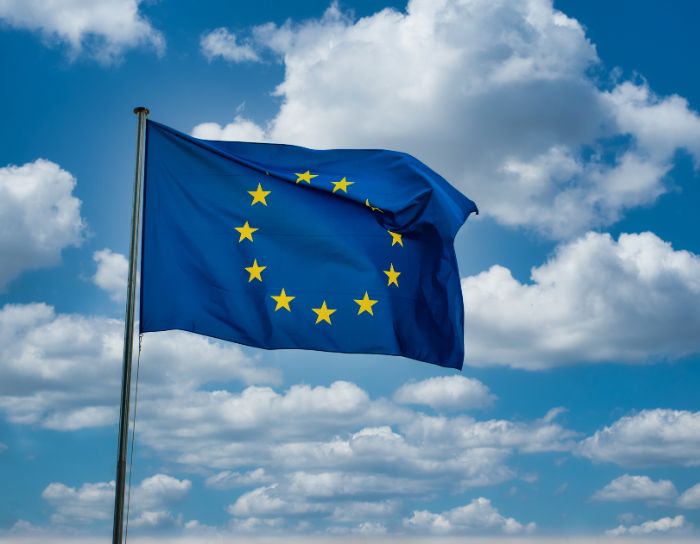Navigating the world with dual citizenship has been quite the journey for me. Holding both Italian and American passports, I’ve experienced the best of both the Old and New Worlds.
The aroma of fresh pasta from the streets of Rome and the bustling energy of New York City have both been integral parts of my identity. For many, especially those in the USA with European roots like mine, the concept of dual citizenship is both intriguing and beneficial.
It’s like having a foot in two worlds, each offering its unique set of privileges and responsibilities.
Exploring European Dual Citizenship

So, what exactly is dual citizenship? As mentioned, it’s when a person is legally recognized as a citizen of two countries at the same time. This status grants the individual the rights and privileges of both countries.
For instance, they can work, vote, or own property in both countries, and they might also have a passport from each. But it’s not all rosy; dual citizens also have to fulfill the responsibilities and obligations of each country, like paying taxes or serving in the military.
The perks of holding dual citizenship are numerous. For starters, it offers greater freedom of movement between the two countries. It can also provide more economic opportunities, access to two social service systems, and the ability to own property in both places. Plus, there’s the cultural enrichment that comes with being a part of two different worlds.
European Union

The European Union, a political and economic union of 27 member states, plays a significant role in citizenship matters. While the EU itself doesn’t grant citizenship, being a citizen of an EU country means you’re an EU citizen too. This status allows you to live, work, or study in any EU country without needing a special visa.
However, when it comes to dual citizenship, the EU doesn’t have a unified stance. Instead, each member country has its own rules and regulations. Some EU countries are quite liberal and allow dual citizenship without any restrictions. Others might have certain conditions attached, and a few don’t permit it at all.
EU Countries That Allow Dual Citizenship

Here’s a breakdown of EU countries that are quite welcoming:
| Country | Eligibility/Conditions |
| Belgium | Unrestricted |
| Croatia | Unrestricted |
| Cyprus | Unrestricted |
| Czechia | Unrestricted |
| Denmark | Unrestricted |
| Estonia | Unrestricted |
| Finland | Unrestricted |
| France | Unrestricted |
| Greece | Unrestricted |
| Hungary | Unrestricted |
| Ireland | Unrestricted |
| Italy | Unrestricted |
| Luxembourg | Unrestricted |
| Malta | Unrestricted |
| Poland | Unrestricted |
| Portugal | Unrestricted |
| Romania | Unrestricted |
| Slovenia | Unrestricted |
| Spain | Unrestricted |
| Sweden | Unrestricted |
Embracing the privileges of dual citizenship can be an amazing opportunity. From unrestricted travel to cultural immersion, the benefits are vast. However, it’s essential to be aware of the specific regulations of each country. While the countries listed above generally allow dual citizenship, always consult with legal experts or the respective country’s embassy for detailed and up-to-date information.
EU Countries With Restricted Dual Citizenship

While many EU countries are open to the idea, some have specific conditions or restrictions in place. Here’s a closer look at some of these countries:
| Country | Restrictions/Conditions |
| Austria | Generally not allowed. Exceptions include those who obtain two citizenships at birth (e.g., a person born to Austrians living in the US). There are also provisions for cases in the interest of Austria or for certain personal reasons. |
| Germany | Germany allows in specific situations. For instance, children born to a German and a non-German parent acquire both nationalities at birth. There are also provisions for ethnic German repatriates and certain other cases. |
| Netherlands | The Netherlands restricts dual citizenship. Citizenship is automatically lost upon acquiring another nationality. Exceptions include being married to a Dutch citizen, being younger than 18, or having asylum residence permits. There are also specific conditions for naturalization. |
| Slovakia | Permitted only for Slovaks who acquire a second citizenship by birth or through marriage. A Slovak loses Slovak citizenship if they voluntarily acquire a foreign citizenship, with a few exceptions. |
| Lithuania | Lithuania generally does not allow. Exceptions include persons deported from occupied Lithuania before 11 March 1990, those who left Lithuania before this date, children acquiring dual citizenship at birth, and a few other specific scenarios. |
| Latvia | Latvia has a unique stance, permitting dual citizenship with specific countries, including EU, NATO, and a few others. Children of Latvians may hold dual citizenship with any country but might have to decide on one citizenship before the age of 25. |
It’s essential to understand that these restrictions can be intricate and might change based on evolving laws and regulations. If you’re considering dual citizenship in any of these countries, it’s crucial to stay updated and perhaps consult with legal experts familiar with the specific country’s citizenship laws.
FAQ
How can I obtain European dual citizenship through investment?
Known as the “Golden Visa,” some EU countries offer dual citizenship to individuals who make significant investments in their country. This visa is temporary but can be renewed as long as the investment is maintained. After residing in the country for a specific period (usually five to ten years), you can apply for citizenship. Countries offering Golden Visas include Spain, Portugal, Greece, Italy, Malta, Switzerland, Austria, Belgium, Germany, Bulgaria, and Ireland.
What is the “Right of Ground” or “Jus soli” in relation to EU citizenship?
The “Right of Ground” or “Jus soli” refers to the right to citizenship based on being born in a particular country. Some countries grant citizenship to individuals born within their borders, even if their parents are not. However, certain countries require that at least one parent was born in that country or have residency requirements for the parents.
Can I obtain EU citizenship through my ancestry or descent?
Yes, many EU countries offer citizenship to individuals who can prove their descent from that country. The rules vary, but in most cases, if your parent or grandparent was from an EU country, you might be eligible, even if you’ve never lived there.
Are there benefits to holding dual EU citizenship beyond travel and work?
Absolutely! Beyond the freedom to travel and work across the EU, offers several benefits. As an EU citizen, you can access world-class education without additional fees, purchase property without permits, access healthcare across the EU, start a business and tap into EU funds, and even get consular protection from any EU consulate when in a non-EU country.
Conclusion
The European Union, with its diverse member states, offers a myriad of opportunities and regulations when it comes to dual citizenship. As we’ve seen, while many EU countries are open to the idea, some have specific conditions, and a few are not in favor at all.
For those in the USA with European ancestry, the possibility of acquiring dual citizenship can be a golden ticket to accessing the rich cultural, economic, and social benefits of both continents.
Whether it’s the joy of connecting with your ancestral roots, the economic opportunities, or the simple pleasure of being a global citizen, dual citizenship can truly be a life-changing experience.
